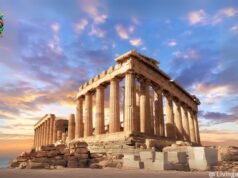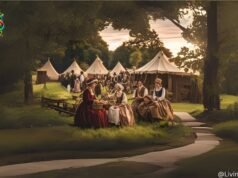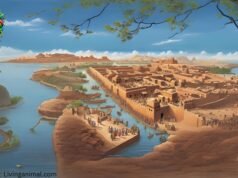Introduction
The Spanish civilization, one of the most influential in world history, has shaped global politics, economics, culture, and technological advancements over centuries. From its early origins to its vast empire, Spain has left an indelible mark on the modern world. This article provides an in-depth look at its founder, political influence, economic factors, social-cultural impact, scientific and technological developments, military and warfare, philosophical and ideological changes, and historical conflicts.
Origins and Founders of the Spanish Civilization
The roots of Spanish civilization date back to prehistoric times, but the Iberian Peninsula saw significant development with the arrival of the Iberians, Celts, and later, the Phoenicians, Greeks, and Carthaginians. However, it was the Romans who played a crucial role in shaping Spain’s early identity. They conquered the peninsula around 206 BCE, establishing Hispania as a vital part of the Roman Empire.
Following the fall of Rome, the Visigoths took control, but in 711 CE, the Moors from North Africa invaded and established Al-Andalus, bringing advancements in architecture, science, and culture. The Christian Reconquista (718–1492) eventually led to the unification of Spain under the Catholic Monarchs, Ferdinand II of Aragon and Isabella I of Castile, marking the foundation of modern Spain.
Political Influence of Spain

Spain became a global superpower during the Age of Exploration (15th–17th centuries), establishing an empire that spanned Europe, the Americas, Asia, and Africa. Key political developments included:
- Habsburg and Bourbon Dynasties: The Habsburgs (1516–1700) expanded Spain’s influence but led to economic decline, while the Bourbons (1700–present) modernized the nation.
- Spanish Empire: At its peak, Spain controlled vast territories, including modern-day Mexico, the Philippines, and much of South America.
- Spanish Civil War (1936–1939): The conflict between Nationalists and Republicans led to the dictatorship of Francisco Franco (1939–1975), shaping Spain’s modern political landscape.
- Democratic Transition: After Franco’s death, Spain transitioned into a constitutional monarchy under King Juan Carlos I, paving the way for its current democratic government.
Spanish Civil War (1936–1939)

The Spanish Civil War was one of the most significant conflicts of the 20th century, shaping the political and social structure of Spain for decades.
- Causes:
- Political instability between left-wing Republicans and right-wing Nationalists.
- Economic struggles and social unrest.
- The rise of fascist and communist ideologies in Europe.
- Military uprisings against the elected Republican government.
- Key Players:
- Republicans: supported by socialists, communists, and anarchists, backed by the Soviet Union and international brigades.
- Nationalists: led by General Francisco Franco, supported by Nazi Germany and Fascist Italy.
- Major Battles:
- Siege of Madrid (1936–1939)
- Battle of Guadalajara (1937)
- Battle of Ebro (1938)
- Outcome:
- Victory for the Nationalists.
- Establishment of Franco’s dictatorship (1939–1975).
- Suppression of political opposition and cultural repression.
- Spain remained neutral in World War II but leaned towards Axis powers.
- Impact:
- Thousands of deaths and a mass exodus of intellectuals and political refugees.
- Economic devastation and political isolation.
- Eventual transition to democracy after Franco’s death in 1975.
Economic Factors

Spain’s economy has experienced dramatic shifts throughout history.
- Colonial Wealth: The influx of gold and silver from the Americas fueled Spain’s economy but also led to inflation.
- Agriculture and Trade: The country was known for olive oil, wine, and textiles, with strong trade routes across the Mediterranean and Atlantic.
- Industrialization: In the 19th century, Spain lagged behind other European nations in industrialization, leading to economic struggles.
- Modern Economy: Spain is now a major player in tourism, finance, and technology, being one of the largest economies in the European Union.
Social and Cultural Impact
Spain’s cultural influence is immense, with contributions in literature, art, music, and architecture.
- Language: Spanish is the second-most spoken language in the world, with over 500 million speakers.
- Literature: Writers like Miguel de Cervantes, known for Don Quixote, have shaped world literature.
- Art and Architecture: The works of Pablo Picasso, Salvador Dalí, and architects like Antoni Gaudí continue to inspire generations.
- Music and Dance: Flamenco, with its deep roots in Andalusian culture, remains a symbol of Spanish heritage.
- Religion: Catholicism has played a dominant role, influencing festivals, traditions, and social values.
Scientific and Technological Developments
Spain has made significant contributions to science and technology.
- Navigation and Cartography: Spanish explorers like Christopher Columbus and Ferdinand Magellan relied on Spain’s advanced navigation techniques.
- Medicine: Spanish scholars contributed to early medical knowledge, including the study of anatomy and pharmacy.
- Engineering: Spain played a role in developing aqueducts, bridges, and early scientific instruments during its empire.
- Modern Science: Today, Spain is at the forefront of renewable energy, space exploration, and medical research.
Military and Warfare
Spain’s military prowess has been evident throughout history.
- Reconquista: The war against the Moors shaped Spain’s medieval history.
- Spanish Armada (1588): A failed attempt to invade England marked the decline of Spanish naval supremacy.
- Napoleonic Wars: Spain resisted French occupation, leading to the Peninsular War (1808–1814).
- Modern Military: Spain is a NATO member and plays a role in global security operations.
Philosophical and Ideological Changes
Spain has been home to various philosophical and ideological movements:
- Golden Age Humanism: Renaissance thinkers like Luis de León and Francisco Suárez influenced European thought.
- Enlightenment and Liberalism: The 18th and 19th centuries saw Spain grappling with modernization and liberal ideas.
- Francoist ideology: Franco’s rule emphasized nationalism and Catholic values, suppressing opposition.
- Contemporary Democracy: Spain today embraces democratic values, human rights, and progressive policies.
Conflicts in Spanish History
Spain has experienced numerous conflicts that shaped its destiny.
- Reconquista (718–1492): The Christian kingdoms fought to reclaim Spain from Muslim rule.
- Spanish Civil War (1936–1939): A devastating conflict between Republicans and Nationalists.
- Basque and Catalan Separatism: Ongoing tensions over regional independence movements.
- Modern-Day Political Struggles: Economic crises and political unrest continue to shape Spain’s future.
Books on Spanish Civilization
- “Imperial Spain: 1469-1716” – J.H. Elliott
A comprehensive look at Spain’s rise as a global power, covering political, economic, and cultural aspects. - “The Spanish Civil War” – Hugh Thomas
A definitive account of the Spanish Civil War, detailing its causes, key figures, and outcomes. - “The Ornament of the” World”—María Rosa Menocal
Explores the period of Muslim, Jewish, and Christian coexistence in medieval Spain and its cultural impact. - “Spain: A History” – Raymond Carr
A concise yet thorough history of Spain from ancient times to the present. - “The Basque History of the World” – Mark Kurlansky
Covers the history and culture of the Basque people, an integral part of Spanish civilization. - “Blood and Faith: The Purging of Muslim Spain” – Matthew Carr
Examines the forced conversion and expulsion of Muslims from Spain after the Reconquista. - “The Spanish Holocaust: Inquisition and Extermination in Twentieth-Century Spain” – Paul Preston
Investigates Franco’s dictatorship and the repression following the Spanish Civil War.
FAQs About Spanish Civilization
- Who founded Spain?
- The unification of Spain is credited to Ferdinand and Isabella in 1492, but its origins trace back to the Romans and Visigoths.
- What was Spain’s biggest historical achievement?
- The establishment of one of the world’s largest empires and its contributions to global exploration.
- Why did the Spanish Empire decline?
- Economic mismanagement, military defeats, and internal conflicts led to its decline.
- What role did Spain play in World War II?
- Spain remained officially neutral but supported Nazi Germany in some ways under Franco’s rule.
- How has Spain influenced modern culture?
- Spanish language, cuisine, art, and architecture have left a lasting impact worldwide.
Conclusion
Spanish civilization is one of the richest and most influential in human history. From its early Iberian roots to its colonial empire and modern-day advancements, Spain has played a pivotal role in shaping global history. Its cultural, political, and scientific contributions continue to resonate, making it a fascinating subject of study.





Its like you read my mind! You appear to know a lot about this, like you wrote the book in it or something. I think that you can do with a few pics to drive the message home a bit, but instead of that, this is magnificent blog. An excellent read. I will definitely be back.
Thank you for another informative web site. Where else could I am getting that type of information written in such an ideal approach? I have a venture that I am simply now running on, and I’ve been on the glance out for such information.